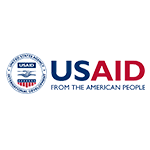Addressing Mistreatment During Labor and Delivery in Zambia
- Mistreatment of women during childbirth in health facilities, especially in the form of health providers insulting, scolding, or treating clients harshly, is a documented problem worldwide and prevalent across all country income levels.
- Through the USAID-funded Breakthrough RESEARCH project and in partnership with the USAID-funded Safe Motherhood 360+ project, we conducted formative research to unpack the behavioral challenges that impede providers from providing respectful care during delivery and developed solutions collaboratively with midwives and laboring women.
- Results from a pilot evaluation suggest that the solutions reduced disrespect and abuse during labor and delivery, improved provider empathy and perception of clients, and increased provision of pain management support.
The Challenge
Mistreatment of women during childbirth in health facilities, especially in the form of health providers insulting, scolding, or treating clients harshly, is a documented problem worldwide and prevalent across all country income levels. Research has documented the human rights implications of such mistreatment, as well as the impact mistreatment has on health outcomes during delivery and future care-seeking decisions for women and children. While several studies have highlighted promising approaches to promote respectful maternity care (RMC), this body of literature is still limited, and few approaches have been scaled outside the initial study sites.
Our Approach
Under the USAID-funded Breakthrough RESEARCH project, we partnered with the USAID-funded Safe Motherhood 360+ project, the District Health Office of Chipata, and the Zambian Ministry of Health on this work. Formative research with laboring women, midwives, labor companions, and supervisors revealed that harsh treatment was normalized within many facilities and that these strong social norms shaped the way new midwives perceived what was acceptable.
Additionally, midwives’ working environment focused their attention on death avoidance rather than a woman’s care experience. As a result, few midwives reported that proactive pain management was a critical part of their role. Together with laboring women, midwives, and their supervisors, we developed a series of behavioral solutions to incorporate pain management into a midwife’s perception of routine tasks; establish clear boundaries as to acceptable provider behavior; elevate the importance of women’s experience of care; and generate reflection and commitment among midwives to improve the care provided to women.
The co-creation process led to a package of four interventions:
- A pain management “toolkit” with facility-based prompts and massage balls.
- A provider-client promise to be enacted upon admission.
- A feedback box that defaulted all women into evaluating their experience.
- A reflection workshop for facilities.
Learn more about these solutions here.
Results
In late 2019, a quasi-experimental trial was conducted in Chipata District with 10 intervention sites and 10 matched comparison facilities. Results of this evaluation showed a 15 percentage point decrease in reported instances of disrespect and abuse among women in intervention facilities. Additionally, pain management support increased in intervention sites where women reported more frequently requesting pain management support and providers placed greater importance on pain management as part of routine clinical care.
Results from this study were disseminated in a national event hosted by Safe Motherhood 360+ project with the Zambian Ministry of Health, which is now considering incorporating solutions into a broader RMC policy. Given the promising results of this work in Zambia, we are now adapting this solution package to Liberia under the USAID-funded Breakthrough ACTION project.
Takeaway
Mistreatment during childbirth is an important issue that merits keen focus. Our results suggest the promise of behavioral solutions as a means to decrease instances of mistreatment as well as improve a woman’s experience of care, particularly through increased pain management support. The interventions developed are low-cost and can be implemented in facilities with relative ease, which shows the potential scalability of these approaches.
Interested in our work applying behavioral science to global health? Email gh@ideas42.org or tweet at @ideas42 to join the conversation.
Partners









